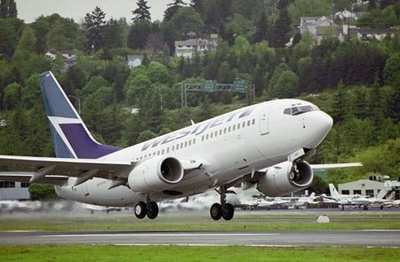Obese Passengers Must Also Be Given Extra Seat
In a judicial precedent that may have implications for US law,
Canada's Supreme Court declined Sunday to hear an appeal filed by
Air Canada and WestJet, arguing the airlines shouldn't be forced to
give disabled and morbidly obese passengers an extra seat for
free.

Canada's National Post reports the court's decision not to
intervene in
the November 2008 ruling ends a
six-year legal battle over the "one-person, one fare" pricing
strategy... stating in essence that airlines should charge per
person onboard their planes, and not per seat.
Both carriers tried to argue that policy would cause undue
financial hardship in difficult economic times. The court also
declined to hear arguments on a proposal from the Canadian
Transportation Agency that would have given the airlines one year
to change their policies; as it stands, airlines were required to
have new policies in place by January 4 of this year.
The de facto approval of "one person, one fare" was lauded by
disabled passengers. "This means I'm equal now," said Joanne
Neubauer, who uses a wheelchair due to her severe rheumatoid
arthritis. "I'm just so excited and happy that justice
prevailed."
The law also requires airlines to provide an extra seat if
disabled passengers require a caretaker while on the flight.
However, it leaves the carriers freedom to decline such requests if
passengers cannot prove the extra person, or space, is a medical
necessity.
"The agency is leaving it up to Air Canada and WestJet to
develop their own screening policies," said CTA spokesman Marc
Comeau.
The case grew out of a 2002 complaint filed with CTA on behalf
of a paraplegic cancer patient, who was denied a free ticket for
his attendant while traveling to Toronto for treatments.
While few would likely argue with special provisions granted to
handicapped or other disabled persons, the requirement to grant a
free extra seat to obese fliers is harder to quantify... and, more
controversial.
At issue is how obesity is defined. Once again, the Canadian law
gives that authority to the airlines -- and says free seats need
not be granted to obese passengers who are merely uncomfortable in
smallish airline seats, only to those passengers whose obesity is a
disability itself.
One possible criteria mentioned is the passenger's ability to
lower the seat armrest; if they can't do it due to their size, that
passenger would be given a free seat.
Linda McKay-Panos is executive director of the Alberta Civil
Liberties Research Center. She also has a declaration from the
Federal Court of Appeal, stating her obesity -- caused by a
preexisting hormonal disorder -- is by law a disability.

"My hips were flowing over the arm rest, my hips were basically
on the lap of the person who sat beside me," McKay-Panos recalled
of her last flight onboard Air Canada, in 1997... a flight she
describes as "humiliating."
Carriers say the requirement will boost their costs... and
passenger ticket fares. CTA estimates show Air Canada will incur a
$7.1 million annual hit to change its rules, which works out to 77
cents per ticket. WestJet will pay $1.5 million, or 44 cents per
ticket.
 ANN's Daily Aero-Term (04.20.24): Light Gun
ANN's Daily Aero-Term (04.20.24): Light Gun Aero-News: Quote of the Day (04.20.24)
Aero-News: Quote of the Day (04.20.24) ANN's Daily Aero-Linx (04.21.24)
ANN's Daily Aero-Linx (04.21.24) Aero-News: Quote of the Day (04.21.24)
Aero-News: Quote of the Day (04.21.24) ANN's Daily Aero-Term (04.21.24): Aircraft Conflict
ANN's Daily Aero-Term (04.21.24): Aircraft Conflict




